Baltimore National Lithuanian Library continued…
Difficult changing times
Although the Library flourished from its founding in 1908 through its 50th Anniversary in 1958, changes in the community began to have an effect on library membership and usage. The influx of displaced Lithuanians after World War II temporarily rekindled the purpose and need for the library, but the children of these new immigrants reflected generational differences. The older immigrants enjoyed and even preferred to read newspapers and books in the Lithuanian language, but with ever greater frequency, their children sought reading material in the language of their new homeland. By the time the National Lithuanian Library celebrated its 50th Anniversary i n 1958, only one of its original founding societies was still represented on the administrative board. Time had taken its toll. Most of the Lithuanian Hall founding organizations experienced a decline in their membership as their older members passed away, others ceased to exist or were consolidated. Such was the case of the proud old Mindaugas and Kęstutis Societies which were forced to merge forming the new Mindaugas-Kęstutis Society (Mindaugo-Kęstučio Draugija). Fortunately, the combined organization remained just as strongly supportive of the library as before.
New support organizations were established: the Lithuanian House Association (Lietuvių Namų Bendrovė), the Lithuanian American Athletic Club (Amerikos Lietuvių Atletų Klubas), the Lithuanian American Community Baltimore Chapter (Amerikos Lietuvių Bendruomenės skyrius), the Lithuanian Alliance of America (Susivienijimo Lietuvių), the United Lithuanians of American (Amerikoje kuopa), Ateitininkai Foundation (Sendraugiai ateitininkai), the Lithuanian Women Citizens Club (Lietuvių Moterų Piliečių Klubas), the Lithuanian Garment Workers’ Union, chapter 218 (Lietuvių Siuvėjų Jungtinės Unijos 218 skyrius), the Lithuanian Student Association – Baltimore Chapter (Lietuvių Studentų Sąjungos Baltimorės skyrius) and the Lithuanian Veterans Organization (Lietuvių Veteranų Sąjunga – Ramovė).
THe devotion of a community
The library continued operating through 1963-1967, largely through the steadfast devotion and relentless efforts of Morkus Šimkus, one of Baltimore’s most energetic Lithuanian activists. After Šimkus moved to Chicago, Genovaite Austriene (Austa) became the library president, Juze Jonciene served as her vice president, Antanas Sajauskas as treasurer, and Juozas Bradūnas as secretary, and Vale Patlabiene as the librarian. Others working at the library included Vale’s husband, Juozas Patlaba and her daughter Marija, Nijole Vitkauskaite Uinskiene, and Bronis Medalis. Their long hours and hard work invigorated the library for a period of time. When Austriene passed away in 2003 she was replaced as president by Nijole Vitkauskaite Uinskiene until she returned to Lithuania. Jaunutis Burbulis then served as president of the library and Marija Patlaba, the daughter of the long-time librarian Vale Patlaba, assumed the position held by her mother for many years. Among those who have graciously donated their time and energy in support of the library activities are Kestutis Chesonis, Alexander Radzius. Jr., Judith Baker, and Henry L. Gaidis.
In 2008 the National Lithuanian Library of Baltimore celebrated its 100th anniversary, making it the oldest functioning ethnic library in the United States. The passage of time has seen a great change in the reading habits of all Americans. Even great old newspapers have ceased to publish and those that have survived are ever more dependent on internet services. Even with the recent arrival of a third wave of Lithuanian immigrants, library usage has decreased and it is now largely relegated to a role of research facility.
Still the venerable old National Lithuanian Library remains true to its original founder’s goal of serving as a learning tool for the Lithuanian American community. The library collection contains over 4,000 old and new Lithuanian language or topic books, some very rare and unique, and continues to acquire newly published books in both Lithuanian and English. There is no better place to conduct historical or genealogy research related to the Baltimore Lithuanian American Community. When you are in Baltimore, come visit the Baltimore Lithuanian National Library!



